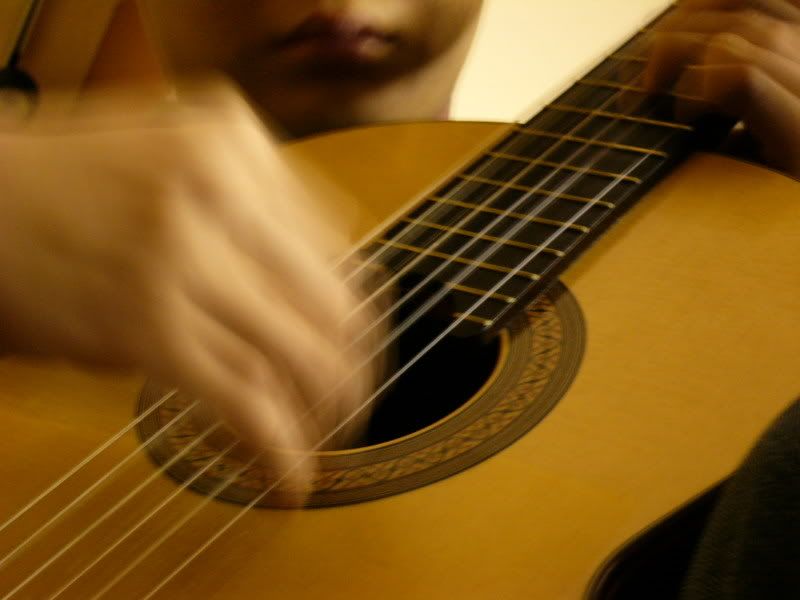I gave an after-dinner talk on cosmology to the residents of my hall on Monday. This was actually only the second time I had given a science talk to a 'lay' audience, the first time being some two years ago in '04, when I gave a talk to some students at my old high-school. In fact, the PowerPoint presentation I used on Monday was modified and refined from the high-school talk. I have given many more talks since the one in 2004, and the experience led me to shorten the talk (my rule of thumb is 1.5 minute per slide) and remove all the custom animations (i.e. having to click to bring out individual sentences). I also made some clarifications and corrections to the material based on the extra two years of knowledge I had gained.
The run-up to the talk wasn't ideal.... most of the Circle, Hammersmith and Metropolitan line was down due to signal failure, and I only got back to Netherhall from uni at around 7.15pm when the talk was supposed to be at 7.30. After forcing down my dinner, I went down to the coffee lounge with my laptop only to find that no one had bothered to set up the projector and screen.
After these technical difficulties were resolved, I finally got going. The audience was fairly good, with about 30 people in the room from my rough estimate. I started off with a historical overview of humankind's view of the cosmos, from the early beliefs about a geocentric universe
of the Sun and other bodies orbiting the Earth, through Copernicus, Kepler and Galileo's discoveries which shed light on the actual arrangement of the Solar System.
I then fast-forwarded to the early 20th century to describe the next great change in our understanding of the cosmos: Hubble's discovery that our galaxy was not unique, and his subsequent discovery of the expansion of the universe. This was followed with a brief description of the nature of this expansion, and then about the cosmic microwave background which wrapped up the talk.
When I finished, I got quite a few sensible questions from the audience, which was gratifying because it meant that my talk wasn't totally beyond them.
The presentation itself was a good one, but I felt that my delivery was rather bad. Considering that I used to be a debater for my high-school, I felt that my talk was quite disjointed and inarticulate. Several times I confused myself in trying to explain things without resorting to technical terms, which disrupted the flow. I think that in the future, I need to use cue-cards to ensure that I deliver everything I intend to say, and to keep my mind focused.
After the talk was over, I got some thank-yous and congratulations from my fellow residents. One positive comment was: 'I didn't understand everything you said, but more than I normally would'. It was clear that the subject matter of my talk was fascinating to laypeople, and that the structure of my talk was at least good enough to keep their interest. However, I think that my verbal delivery needs to be polished to give more eloquence and articulation.
When I go back to Malaysia during summer, I will try to arrange a few talks in some schools. I've managed to hold the attentions of a group of grown adults, so we'll see how successful I am in trying to reach out to teenagers.
Thursday, March 16, 2006
Subscribe to:
Comments (Atom)
